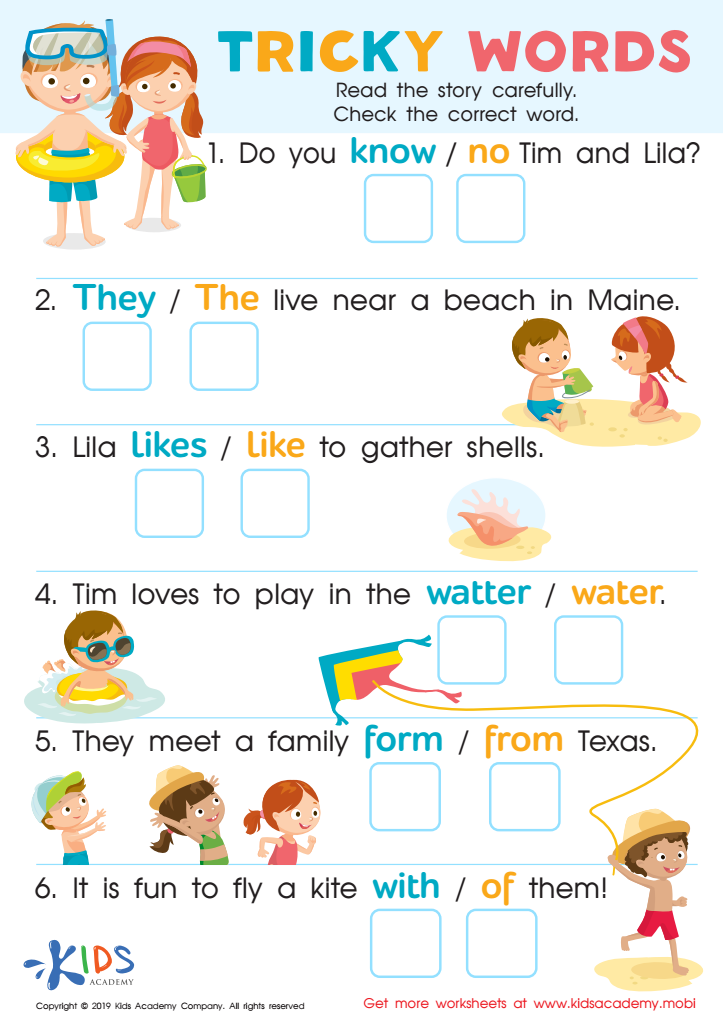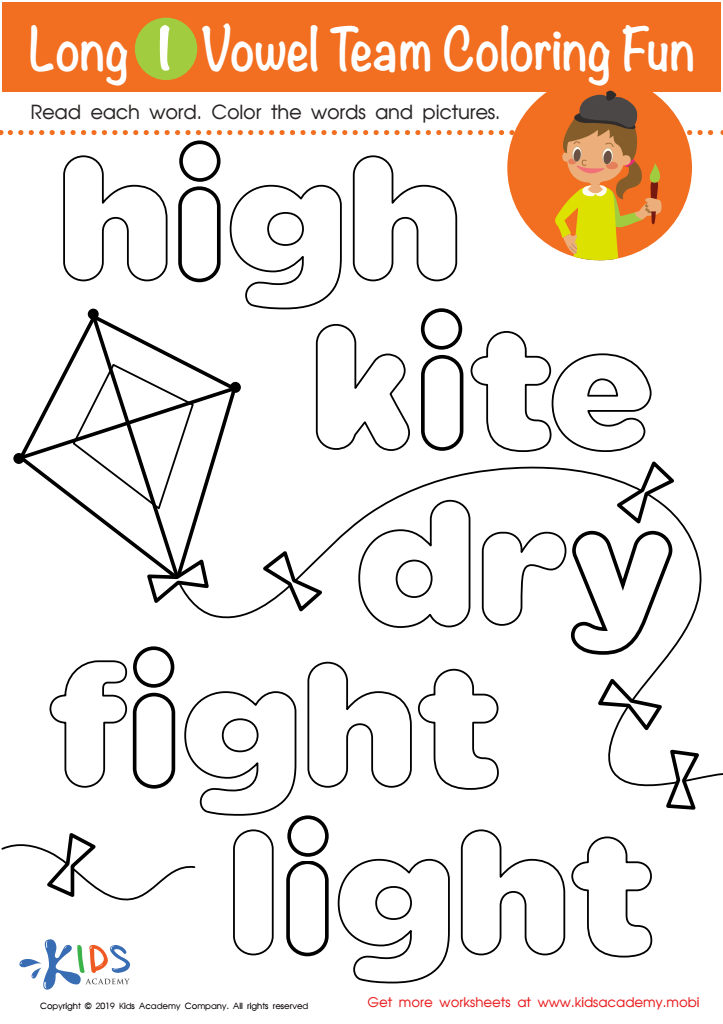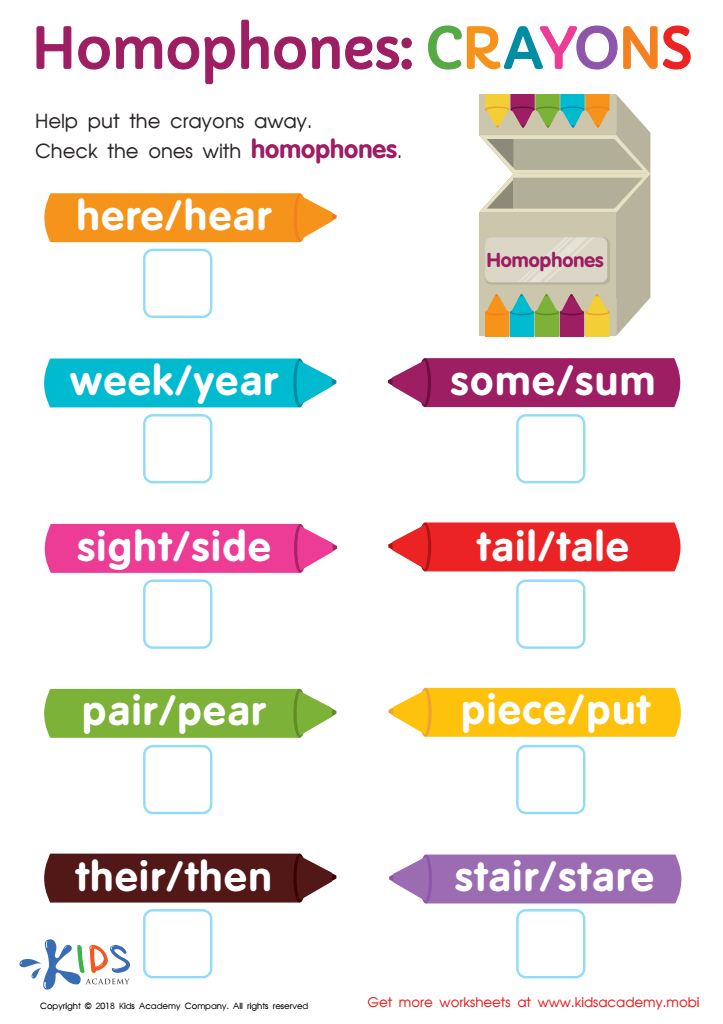Spelling practice Normal Elementary Phonics Worksheets for Ages 7-8
3 filtered results
-
From - To
Enhance your child's spelling skills with our Spelling Practice Normal Elementary Phonics Worksheets for Ages 7-8. These engaging and educational worksheets are designed to build strong phonics foundations and boost confidence in young learners. Crafted by expert educators, the activities combine fun and learning by focusing on key spelling patterns and phonemes. Perfect for both classroom and home use, the worksheets encourage independent practice through interactive exercises. Help your child master spelling while developing essential literacy skills. Discover a world of words with our comprehensive phonics worksheets and watch your child’s spelling prowess flourish!


Tricky Words Worksheet


Long I Vowel Team Coloring Worksheet


Homophones: Crayons Worksheet
Spelling practice and elementary phonics are crucial for children aged 7-8 due to their foundational role in literacy development. At this age, children transition from recognizing simple letter sounds to understanding more complex word structures. Spelling practice helps solidify their grasp of language rules and improves their reading and writing skills.
First, engaging in regular spelling exercises enhances phonemic awareness, or the ability to hear, identify, and manipulate phonemes. This skill is critical for decoding new words, laying the groundwork for fluent reading.
Second, strong spelling skills contribute to better comprehension. When children can spell words correctly, they spend less mental effort on decoding and can focus more on understanding the text's meaning. This fosters a deeper engagement with learning materials and encourages a lifelong love for reading.
Moreover, good spelling and phonics skills are directly linked to improved writing abilities. Early mastery of these areas enables children to construct sentences and express their ideas more clearly. This clear communication is a cornerstone for all academic subjects and overall self-expression.
Lastly, consistent spelling practice boosts confidence. As children see their skills improving, they become more willing to take on reading and writing challenges. Ultimately, investing in elementary phonics and spelling fosters not just academic success but also boosts a child’s overall confidence and enthusiasm for learning.
 Assign to My Students
Assign to My Students









